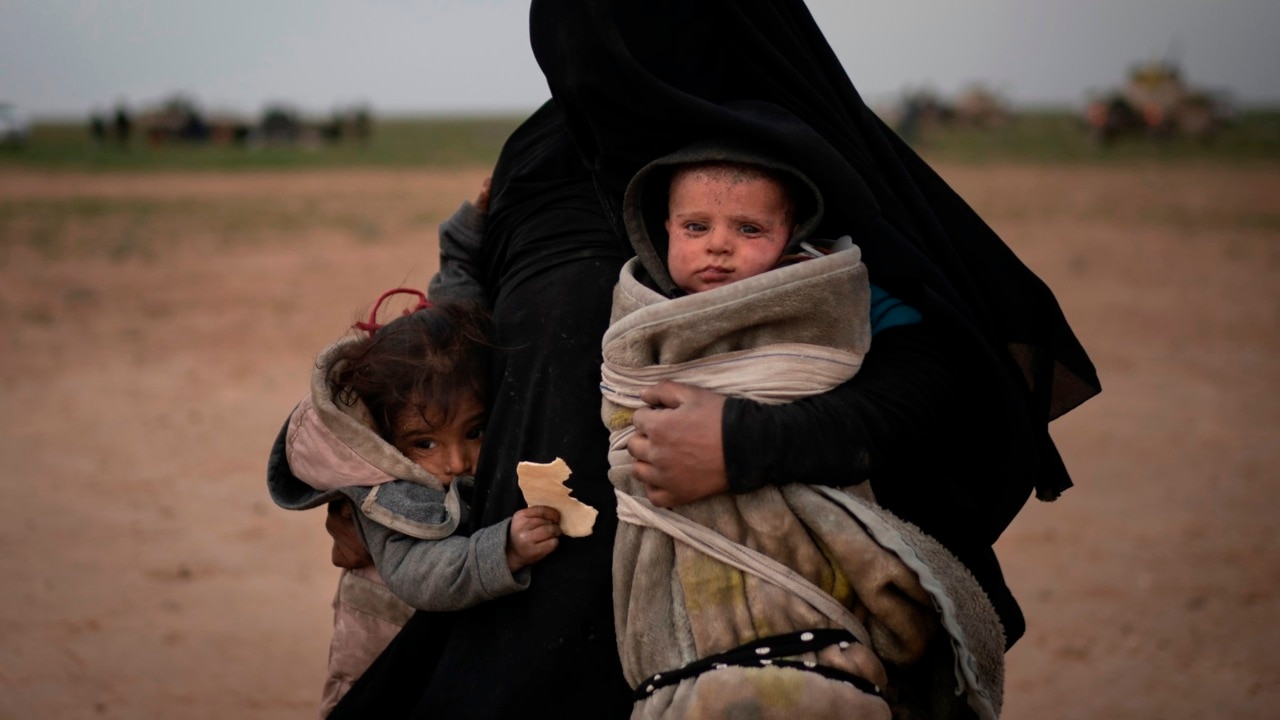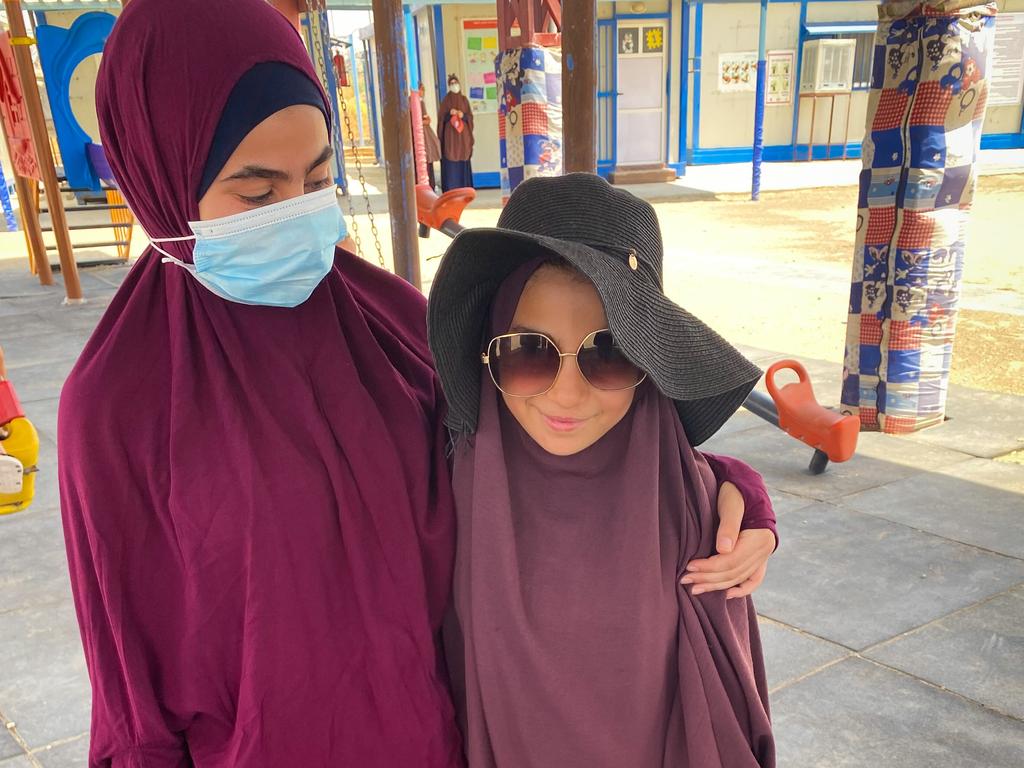Rush to plug loophole that could give citizenship to Islamic State members
The Albanese government has acknowledged legislative flaws that would allow more than a dozen accused Islamic State terrorists to apply to have their Australian citizenship returned.

The Albanese government will rush to plug a looming hole in Australia’s national security laws after acknowledging legislative flaws that would allow more than a dozen accused Islamic State terrorists to apply to have their Australian citizenship returned.
The move comes four months after the High Court shot down the Coalition-era citizenship cessation laws, ruling them invalid because they relied on a ministerial decision instead of a judicial one.
Government lawyers believe they would lose any further cases challenged in the court, and have told notorious jihadi bride Zehra Duman’s legal team they will no longer fight her appeal against the decision by the previous government to strip her citizenship.
The decision creates a precedent that would open the door for other known terrorists including Neil Prakash and Ahmed Merhi to apply to have their citizenship restored.
In response, the government will introduce its own citizenship cessation laws, which would empower a court, instead of a minister, to rule on whether a person should lose their citizenship due to their terrorism activities.
It is believed the laws will be retrospective, and apply to people who commit terrorism offences overseas as well as on Australian soil, meaning it would potentially apply to those such as Duman, Merhi and Prakash, who have been convicted of terrorism in Turkey or Iraq.
In the meantime, those people and others could be held offshore under temporary exclusion orders.

Home Affairs Minister Clare O’Neil confirmed the government’s plans and attacked Opposition Leader Peter Dutton, a former home affairs minister who stripped citizenship from several of the alleged ISIS members.
“This was a monumental mistake by Mr Dutton. He personally championed these laws and he is personally responsible for their failure – especially because he ignored all advice given to him during their passage through parliament,’’ Ms O’Neil said.
“Laws that fail in the courts do not make the country safer.
“If terrorists commit crimes against Australia, and we can take away their citizenship, we should. We will legislate to achieve that end, because that is the safest thing for our country.
“Our new laws will be tough, and they will work.’’
Ms O’Neil said the legislation would be introduced shortly, and she was hopeful of Opposition support.
The government has been working on a legislative solution to the citizenship problem since June, when the High Court ruled the decision to strip citizenship from Delil Alexander, a dual Australian-Turkish national detained in Syria, was invalid because it “reposes in the Minister for Home Affairs the exclusively judicial function of punishing criminal guilt”.
While the ruling related to a single clause and affected only Alexander and one other person, who immediately had their citizenship restored, the finding of ministerial overreach had direct implications for the other approximately 20 Australians whose citizenship had been revoked over their alleged terrorism links.
The government is preparing to repatriate a group of 16 women and 42 children in al-Roj camp in Syria, but the new legislation is not aimed specifically at the family groups. Only one of the women in the camp has lost her citizenship and most are not suspected of the most serious crimes such as being a fighter or actively promoting Islamic State, as Duman, Merhi and Prakash were.
Of about 20 people who lost their citizenship since the laws were first introduced in 2015, the majority are men, and a handful have since been killed, including notorious Sydney man Khaled Sharrouf, the first to lose his citizenship when he was in Syria in 2017.
Melbourne-born Islamic State fighter and cheerleader Prakash, who was arrested sneaking out of Syria in 2016, had his citizenship revoked in 2018 by Mr Dutton, who said he could rely on citizenship from Fiji, the country of his father’s birth.

Fiji rejected that claim and the apparently stateless Prakash has been in immigration detention since February, when he completed a jail term after being convicted in Turkey of being a member of Islamic State.
Ahmed Merhi, of Sydney, is being held in a prison in Baghdad alongside his cousin Tarek Khayat, the mastermind of the Etihad plane-bombing plot, after being convicted of being a member of Islamic State.
While Prakash and Merhi are known ISIS members, they have not been convicted of terrorism offences in Australia.
Duman, who is living in Turkey with her two children after escaping the al-Hol detention camp in Syria, is Australia’s most notorious jihadi bride, marrying three fighters including fellow Melburnian Mahmoud Abdulatiff, and using social media to post photos urging people to attack and kill nonbelievers.
Her social media channels showed young boys with guns, and one picture showed a group of Islamic State women sitting on a BMW car brandishing machine guns and the Islamic State flag, captioned “5-star jihad”.
Duman went to Syria in late 2014, and was detained in the Kurdish region of the country following the fall of Islamic State in March 2019.
She lost her Australian citizenship later that year, but later escaped al-Hol with the help of people-smugglers, making it across the border in Turkey.
In September 2020, she was sentenced to jail after being convicted of being a member of a terrorist group, but released several weeks later into the community with her children, a son, Jarrad and a daughter, Layla.

Her family in Melbourne has long campaigned for her return, saying she was brainwashed and was just 18 when she left the country.
Another who may be affected is Suhayra Aden, who was born to Somalian parents in New Zealand, emigrated to Australia when she was six, and held dual New Zealand and Australian citizenship. She travelled to Syria in 2014, married two Swedish Islamic State fighters and had three children, one of whom died. She also escaped al-Hol camp and made it to Turkey, where she found Australia had revoked her citizenship. The decision sparked a diplomatic war with New Zealand, and earlier this year she was repatriated to New Zealand.
Nabil Kadmiry, of Melbourne, a dual Moroccan-Australian, is also among those who lost their citizenship. He is being held in a jail in northeast Syria after taking his family to the so-called caliphate. His wife and children are in al-Roj camp.
Last month, the High Court told The Australian there were no further citizenship challenges listed before the court.
It is possible the only person who will not be affected by the government’s decision to abandon the laws is Abdul Nacer Benbrika, an al-Qa’ida sympathiser jailed for 15 years for his leadership of terrorist cells that plotted blowing up landmarks in Melbourne and Sydney in 2004.
He is currently in jail on a three-year continuing detention order, allowing him to be held after his jail term has been completed.
The Algerian-born Benbrika is the only person who had their citizenships stripped after being convicted in the Australian courts. The others were either accused or convicted in foreign courts, or never charged.








To join the conversation, please log in. Don't have an account? Register
Join the conversation, you are commenting as Logout